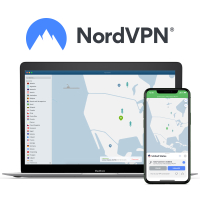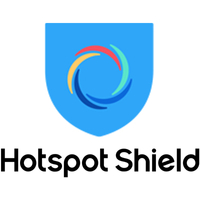The best free VPN in 2025
Our fully tested and ranked guide to the best free VPN services
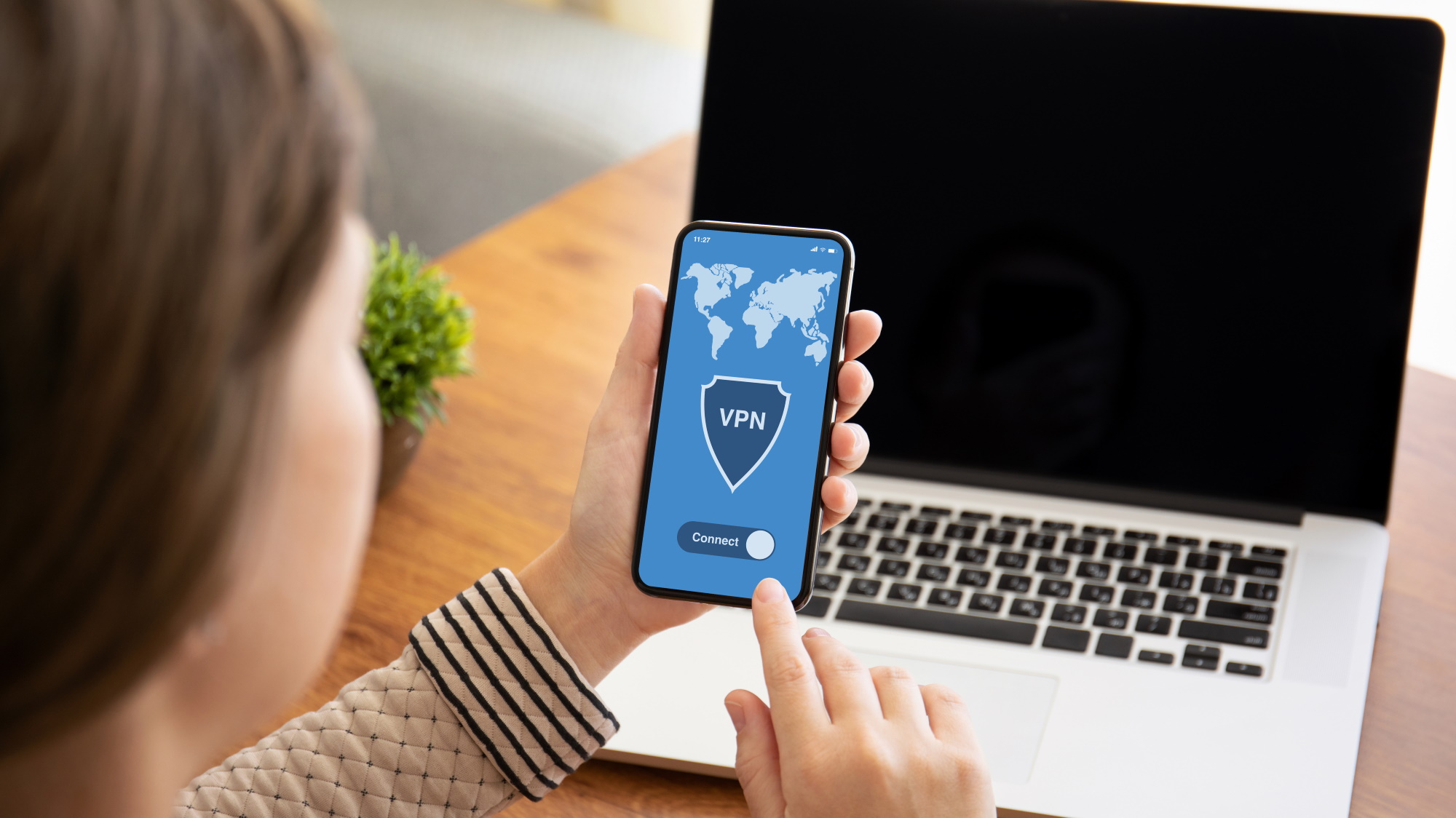
Picking up one of the best free VPNs seems like a quick and easy way of improving your online privacy and accessing blocked websites. Choosing the right one, though? Not quite as simple.
Unfortunately, there are countless slow, buggy, and downright harmful free VPNs. That's why we've taken it upon ourselves to review dozens of the best VPNs and ranked them in our guides. We test free VPNs in exactly the same way as paid VPNs – considering speed, privacy, streaming and more – and score them on the same scale.
Unsurprisingly, free VPNs rarely outperform their paid-for cousins – poor streaming support, data caps, and limited features are commonplace. However, for basic privacy, there are a number of decent providers. The best free VPN from our testing is PrivadoVPN. Read our PrivadoVPN Free review, or head to the PrivadoVPN website to sign up.
The best free VPNs at a glance
Here's a brief comparison of the top three free VPNs. PrivadoVPN is fast and decent for streaming, but has a 10 GB data cap. Proton VPN is super secure and offers unlimited data, but doesn't allow you to pick your server. Windscribe has the most in-depth features, but the apps are tricky to use.
| Header Cell - Column 0 | Speed & streaming | Privacy | Apps | Servers |
|---|---|---|---|---|
★★★★★ | ★★★★☆ | ★★★★☆ | ★★★★☆ | |
★★★★☆ | ★★★★★ | ★★★★☆ | ★★☆☆☆ | |
★★★★☆ | ★★★★☆ | ★★☆☆☆ | ★★★★☆ |
The best VPN overall
NordVPN isn't free, but it is the best overall VPN that we've tested. It unblocks tons of streaming sites, has additional anti-malware features, and is incredibly fast. What's more, you can get a whole month for free if you claim a refund within 30 days.
NordVPN – the best VPN overall
In our testing, NordVPN outperformed all other VPNs – and for most people, it's best choice. It's capable of speeds far faster than most people's home Wi-Fi, the apps are secure and easy to use on all devices, and best of all, there are no limits on how much data you can use. It's good value, too, at $3.09 per month – and the 30-day money-back guarantee means you can test it for a month, and claim a refund if you don't like it.
Recent updates
In my last update, we added some of the latest news we've covered involving Proton VPN. This includes April's app refresh on Windows, iOS and Android, and its partnership with privacy-focused browser Vivaldi. We've also checked over the facts and figures to ensure they are up to date.
The best free VPNs of 2025
Why you can trust Tom's Guide
PrivadoVPN: The best free VPN overall
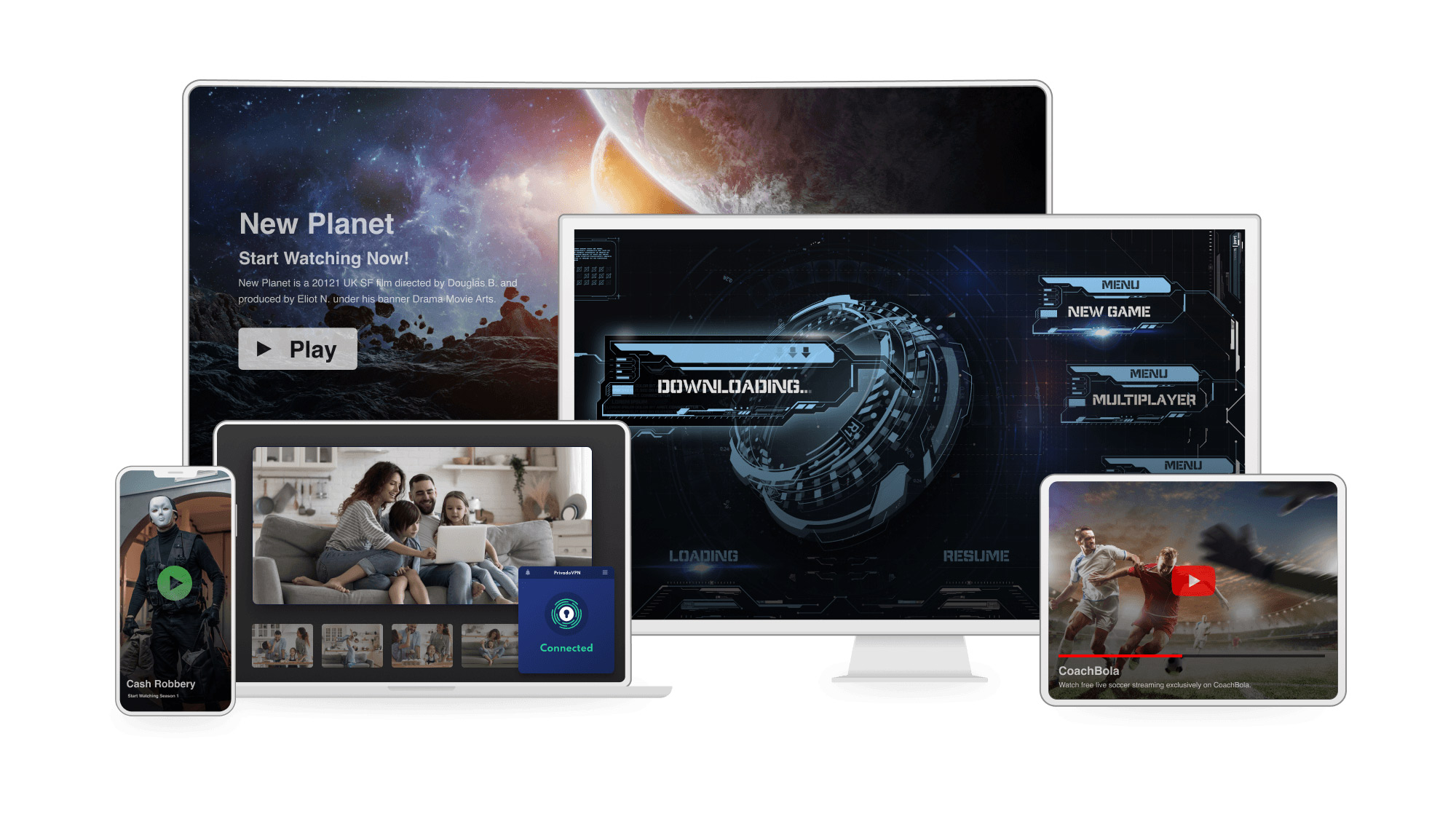
1. PrivadoVPN Free
As fast as most paid-for providers, with impressive streaming power
Countries: 10 | Server locations: 12 | Maximum devices supported: 1 | Available on: Windows, Mac, iOS, Android, Linux | Data limit: 10 GB per month (+ slow unlimited data) | Customer support: FAQ, email tickets
The short version: PrivadoVPN is my top free VPN recommendation because it offers an excellent balance of privacy, content unblocking, and ease of use. The interface is simpler than its biggest rival, Proton VPN, and it's incredibly fast – beating many paid services. If you're looking to unblock every streaming site, you'll need to go with a premium provider like NordVPN, but PrivadoVPN Free did manage to get access to UK and US Netflix. If you're not willing to pay, PrivadoVPN is the best choice.
Speed, streaming and data: ★★★★★
Faster than many paid VPNs, and the best free VPN for streaming.
When we recently reviewed PrivadoVPN Free, we saw speeds of around 950 Mbps on our ultra-fast connection – about 40 times the speed needed to stream 4K Netflix – making it one of the fastest VPNs. Remarkably, it's almost as fast as paid VPNs like NordVPN and Surfshark which topped out at just over 950 Mbps, and much faster than Private Internet Access which clocked in at around 450 Mbps.
PrivadoVPN was able to unblock UK and US Netflix, and BBC iPlayer in our testing, which is better than Proton VPN Free, making it the best free VPN for streaming. However, this is nowhere near as comprehensive as the best streaming VPNs, which can unblock just about every global streaming service.
The 10 GB data limit should be enough for most daily purposes, but if you do end up watching a load of Netflix, be aware that you'll end up burning through this very quickly. Should that happen, you'll still have technically unlimited data to use, but you'll be capped to 1 Mbps (which is very slow).
If you're in a pinch and desperately want to watch an episode or two of something not available in your country, PrivadoVPN is absolutely your best choice.
Privacy: ★★★★☆
Well-made apps and good core privacy features, but no audit.
At its core, PrivadoVPN is built around AES-256 encryption, which is the industry standard. In short, even if your traffic is intercepted it'll be totally unreadable. OpenVPN and WireGuard protocols are both available, and while most users will now use the swift and secure WireGuard, it's nice to have OpenVPN as an option.
In our testing, we found no privacy issues with PrivadoVPN
In our testing, we found no privacy issues with PrivadoVPN. The kill switch (which cuts your connection if the VPN drops out) proved to be reliable, and it also has a comprehensive no-logging policy. However, this policy is yet to be audited by a third party, so we have to take it at face value. If you'd prefer a VPN that has had its logging policy audited, take a look at Proton VPN in the #2 spot in this guide.
There are a couple of adjustments you can make – switching between OpenVPN UDP and TCP, and selecting your port – and obfuscation allows you to hide the fact you're using a VPN at all. However, if you're not interested in these, you can totally ignore them and still get great performance.
Apps: ★★★★☆
Super simple to use, but few extra features
PrivadoVPN's interface is very simple. All you need to do is install the app, tap the "on" button, and wait a second or two. There are similarities with premium rival ExpressVPN here, in as much as when you open the software, you'll be met with a big on/off button, and not much else. The settings menu allows you to adjust features like the kill switch and protocol, but that's about it. If you want to customize a lot of features, you'll be disappointed, but in reality it's intuitive and very easy to use.
Locations: ★★★★☆
Good coverage with servers in 10 countries.
Having a server in the right country is essential for optimal performance, and PrivadoVPN has one of the best spreads I've seen from a free VPN. With 12 locations in 10 countries (Argentina, Brazil, Canada, France, Germany, Mexico, the Netherlands, Switzerland, the United Kingdom, and the United States), you've got a good shot at finding a server near your real location.
This is PrivadoVPN Free's biggest limitation – most top providers like NordVPN and ExpressVPN have servers in over 100 countries.
12 locations in 10 countries is a generous spread for a free product
However, in comparison, Privado's closest rival Proton VPN only offers servers in five countries. What's more, Proton VPN doesn't allow you to actually choose which server you connect to, while PrivadoVPN offers you full control over which server to use.
Choose it if:
✅ You want to be able to choose and change your server at will
✅ You need a very fast connection
✅ You're a beginner looking for a simple, effective free VPN
Avoid if:
❌ You really need unlimited data
❌ You demand a fully audited no-logs policy
Final verdict

PrivadoVPN Free offers an almost unbelievable amount of functionality for a free VPN. While it can't match up to the likes of NordVPN of ExpressVPN, it gets the closest out of all the free alternatives. I'd like to see an independent audit of the privacy policy sooner rather than later, but it's super simple to use, and very reliable. For most people, it's the one to go for.
Best free VPN with unlimited data
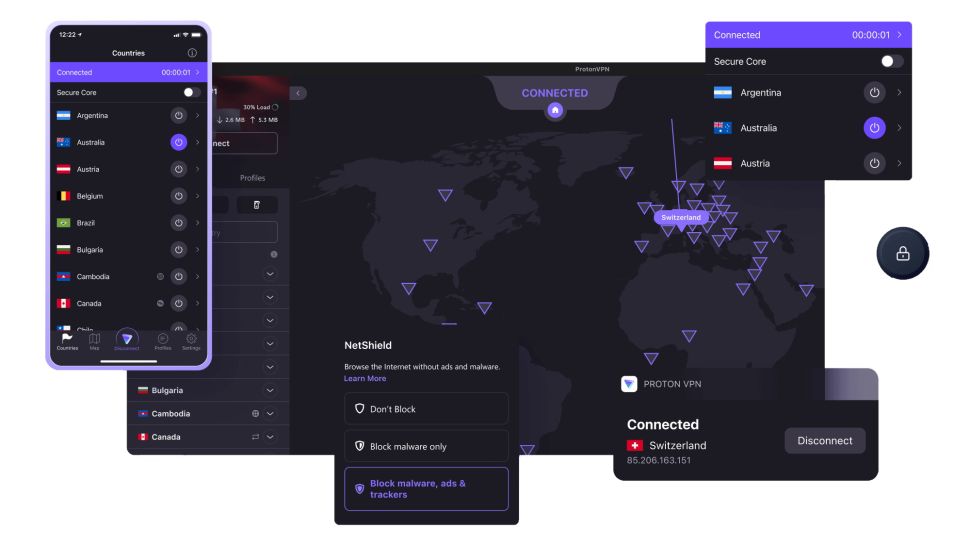
2. Proton VPN Free
Swiss privacy and unlimited data – but some big server restrictions
Countries: 5 | Server locations: 5 | Maximum devices supported: 1 | Available on: Windows, Mac, iOS, Android, Linux | Data limit: Unlimited | Customer support: FAQ, email tickets
The short version: Proton VPN is the best free VPN if you need unlimited data and maximum privacy online. Just like the paid version, its privacy claims have been verified by a third-party audit, and connection speeds are very good. Its biggest limitation is that you can't directly choose which server you connect to, meaning it could take minutes to find the one you want through trial and error. This means it can't match PrivadoVPN for overall performance, but it's a great choice if you need more than 10 GB of data.
Speed, streaming and data: ★★★★☆
Unlimited data makes Proton perfect for always-on protection.
Proton VPN and PrivadoVPN are effectively two sides of the same coin. Proton's unlimited data allowance means that you can just connect and forget about your VPN. You won't end up running out of bandwidth, which is perfect if you just want basic privacy protection active 24/7.
Peak speeds of around 520 Mbps (about 10 times faster than you need to stream 4K Netflix) mean that you won't be held back either, but unlike PrivadoVPN Free and Proton VPN's paid plan, the free version can't unblock any streaming sites. That said, there is a dedicated server for accessing the unbiased news published by Deutsche Welle, which is essential for people who are subject to strict state censorship.
Privacy: ★★★★★
The best free VPN for privacy.
This is Proton VPN Free's strongest area, and we found in our Proton VPN Free review that unlike many free VPNs, it doesn't hold back any essential privacy features from free users.
You get a kill switch, access to both WireGuard and OpenVPN, and a big bonus is that Proton owns all of its servers. This means it doesn't rent from third parties, which in turn means that your data isn't exposed to anyone you're not aware of.
Something interesting to note is that in March 2025, Proton VPN partnered with Vivaldi, a privacy-focused browser. This is yet more evidence that Proton VPN is a respected and trustworthy provider.
If your main priority is privacy, Proton is the best choice.
The no-logs policy – Proton's promise that it does not store any of your data – has also been independently audited. This is in contrast to PrivadoVPN's, which has not yet been proven by a third party.
There are a couple of privacy-based features that aren't available on the free plan. For example, you won't get access to the Secure Core servers, which route your traffic through an extra server before sending it on its way. The NetShield ad and tracker blocker is also unavailable, but all the must-haves are present – including anti-censorship features like the Stealth protocol.
Overall, Proton VPN is the gold standard when it comes to free VPN privacy, and is comparable to the likes of ExpressVPN and NordVPN. If your main priority is privacy online, Proton is the best choice.
Apps: ★★★★☆
Powerful, but slightly complex.
Proton VPN's apps aren't difficult to use, but it's undeniable that PrivadoVPN is simpler. However, the upside to this is that you get access to all the essential privacy settings often left out in free VPNs.
In April 2025, the Windows, iOS and Android apps here overhauled, addressing a number of our concerns. For example, gone is the map that was clunky on smaller screens. We now have simpler apps that look more modern, and work more efficiently. Good stuff.
Locations: ★★☆☆☆
Decent selection, but no manual server choice.
Proton VPN gives free users access to around 100 servers in five locations – the Netherlands, Japan, Poland, Romania, and the US. On first glance, that appears to be a fairly decent spread, although not quite up there with PrivadoVPN Free.
However, when you start trying to play around with which server to use, you'll encounter Proton VPN's biggest limitation: you can't choose which server to connect to.
Proton VPN's biggest limitation is that you can't choose which server to connect to.
If you're just setting and forgetting, this might not be an issue. However, let's imagine you're in the UK, and you're assigned to the Japan server. You'll probably want to connect to the Dutch server instead. Instead of being able to simply select the Netherlands server and connect, you have to "re-roll" your server. This process randomly assigns you to another location, and if it's not the one you want,. you have to wait 90 seconds to do it again.
Proton has clearly done this to manage load on its most popular free servers. However, when you consider PrivadoVPN manages to deliver consistently faster speeds while allowing you to choose freely, it seems a little stingy of Proton to restrict this.
Choose it if:
✅ You need unlimited data
✅ You want the best privacy of any free VPN
✅ You might upgrade in the future
Avoid if:
❌ You want to manually select your server
❌ You want to stream overseas content on Netflix
Final verdict

If you're looking for maximum privacy from your free VPN, Proton VPN is my top recommendation. It's fast, has had a number of independent audits, and is widely trusted in the community. However, it's no good for streaming global content, and many people may find not being able to choose your exact server too much hassle.
Best free VPN Chrome extension
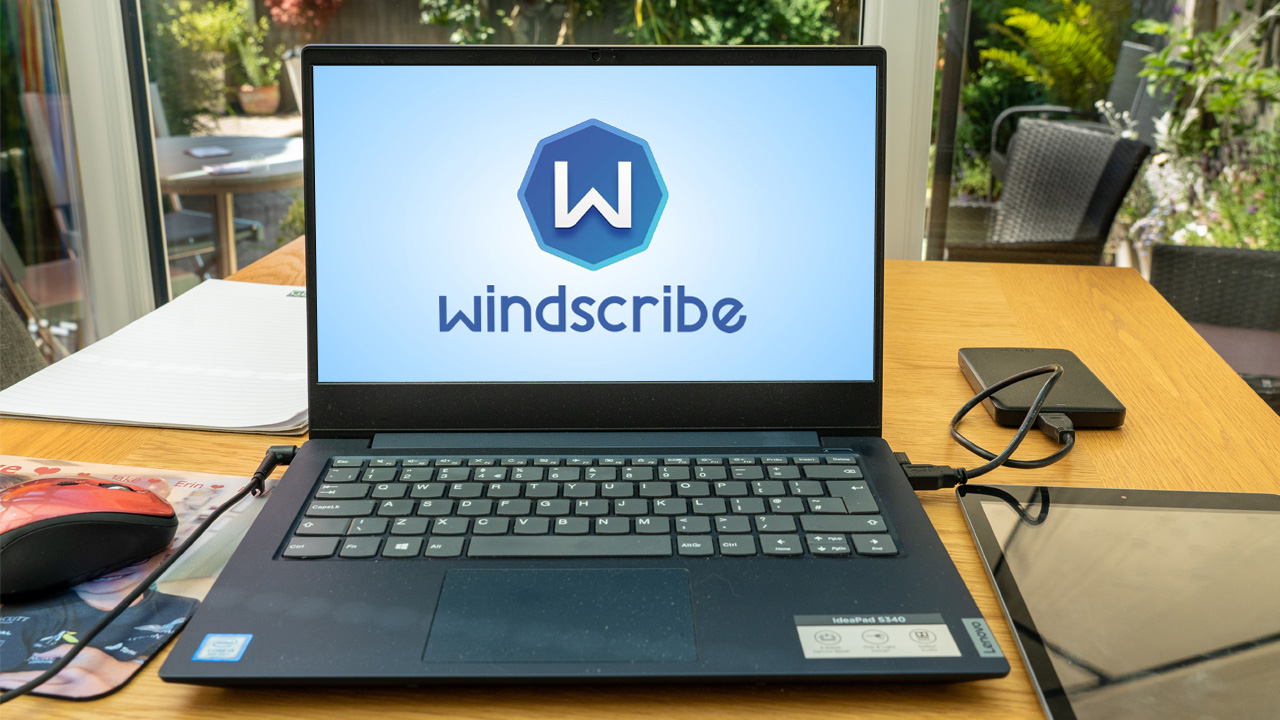
3. Windscribe Free
Fast with tons of features, but the apps let it down
Countries: 11 | Server locations: 14 | Maximum devices supported: Unlimited | Available on: Windows, Mac, iOS, Android | Data limit: 10 GB | Customer support: FAQ, email tickets
The short version: Windscribe is a popular VPN provider, well-known for its zany marketing and a strong commitment to user privacy. In our Windscribe Free review, we found that its free VPN was its best offering. It occupies the middle ground between PrivadoVPN and Proton VPN – it's fast and has more servers than Proton VPN, but it also has a plenty of features that PrivadoVPN doesn't offer. The downside is that it's not very easy to use, and it can't quite match the privacy that Proton VPN offers. I recommend installing its Chrome extension instead – I rate it as one of the best Chrome VPNs around.
Speed, streaming and data: ★★★★☆
A generous 10 GB of data plus decent streaming power.
Windscribe is on par with PrivadoVPN here, with the same data allowance of 10 GB a month, excellent speeds of around 900 Mbps, and the ability to unblock a few Netflix locations and BBC iPlayer. This is very impressive, and it definitely outdoes Proton VPN in this area.
One small difference is the fact that PrivadoVPN offers unlimited – albeit incredibly slow – data once you've run out of your monthly allocation, whereas Windscribe will cut you off. Of course, you could just make another free account, but who wants to do that?
Privacy: ★★★★☆
Very comprehensive privacy features
In terms of privacy, Windscribe has the most features of any free VPN I've featured here. There are the basics like a kill switch – known here as "firewall" – and split tunneling, but it doesn't stop there. There's auto-connect, packet size adjustment, MAC spoofing, obfuscation, and more. If that's all meaningless jargon to you, this won't make a difference – but if you're interested in this, it's a big positive.
Windscribe is also open-source, meaning anyone can check in on the code used in the apps. This is a big benefit, as it means there can't be anything hidden away – everything is on show for all to see.
Windscribe has the most features of any free VPN I've seen.
The R.O.B.E.R.T. feature is another useful addition which blocks trackers, ads, and malware, as well as offering to block various other things like adult content, gambling sites, social networks, and even "clickbait." This is free to use, and every time I open the app, I'm amazed at just how much Windscribe gives you.
One drawback is the fact that Windscribe hasn't undergone the amount of independent audits that others VPNs have. However, in July, 2024, its server stack was fully audited, so I have my fingers crossed that updated audits for other areas are in the works.
Apps: ★★☆☆☆
Plenty of options, but a pain to use.
If Windscribe's features are its biggest asset, its apps are its greatest downfall. On desktop, the client opens up as a very small window which extends in various ways to display the servers and the settings menu.
Windscribe's apps are small, complex and fussy to use.
It's easy enough to connect – just click the on/off button – but doing anything else is confusing. There are tons of different layers in the menus, which can be a real pain if you just want to nip into the app to use a certain feature. Obviously, a product with so many features needs to work out how to display everything, but making an app with a bigger footprint would be the easiest way to fix this, rather than squashing everything into a tiny box.
That said, once you get it going, the apps are stable on both desktop and mobile, and I haven't experienced any issues with the core VPN's performance.
Locations: ★★★★☆
The best server selection of any free VPN.
Another of Windscribe's strong suits is the range of servers it makes available for free users. You get 14 locations scattered across 11 countries – one more than PrivadoVPN – and unlike Proton VPN, you're free to select whichever one you like, whenever you want.
This is still nothing compared to the likes of Private Internet Access or ExpressVPN – but for free, I can't complain too much.
Choose it if:
✅ You want the most features as possible for free
✅ You need servers in a country only offered by Windscribe
✅ You're a Chrome user
Avoid if:
❌ You're a beginner, or like simple apps
❌ You value consistent independent audits
Final verdict

If you're looking for the most powerful free VPN, Windscribe could be your best bet. It's flexible, offers a decent amount of data every month, and barely restricts any features on the free plan. However, be prepared to live with annoying apps and the lack of an independent audit.
Best free VPNs compared
This table compares my top three free VPNs in all four areas that define its placement on this guide. Compare each provider, and see which one suits you the best.
| Header Cell - Column 0 | PrivadoVPN Free | Proton VPN Free | Windscribe Free |
|---|---|---|---|
Speed, streaming and data | ★★★★★ | ★★★★☆ | ★★★★☆ |
Privacy and security | ★★★★☆ | ★★★★★ | ★★★★☆ |
Apps | ★★★★☆ | ★★★★☆ | ★★☆☆☆ |
Locations | ★★★★☆ | ★★☆☆☆ | ★★★★☆ |

Other free VPNs worth considering
I think the vast majority of people will be best off picking from either PrivadoVPN, Proton VPN, or Windscribe. However, I've reviewed lots of other free VPNs, and some are still worth considering. Below are two more options that made the cut.
Hide.me is a Malaysian VPN that's been around for a long time. Its paid plan is popular, but it also offers a free version that gives you 10 GB of data, and servers in the US, Canada, Germany, and the Netherlands.
Key reasons to download Hide.me are its excellent torrenting performance, and lots of customizable features. It's great for those who know what they're doing, but casual users may be intimidated by the apps.
What really holds Hide.me's free VPN back is the fact that it doesn't support WireGuard, and only allows you to use OpenVPN. The result of this is that connection speeds are slowed to around 25 Mbps, which just isn't fast enough any more.
This is a shame, because Hide.me's paid version is very fast, but I'd avoid the free plan unless it offers something very specific that you can't find elsewhere.

Hotspot Shield was once my top choice of free VPN, but as the years have gone by it's failed to keep up with the competition.
Something it shares with Proton VPN is an unlimited data policy, and with speeds of around 590 Mbps you'll be able to make the most of this. It's also very easy to use, and the Chrome extension is great.
What puts me off the most when using Hotspot Shield, though, is the fact that it shows ads when you connect on mobile devices. It doesn't do this on desktop, but instead automatically opens its own website in your default browser when you connect.
Combined with just a single US server for free customers, some session logging, and the lack of a kill switch, it's unfortunate to say that there aren't a lot of reasons to choose Hotspot Shield over PrivadoVPN or Proton VPN.
Tested by
These are the experts who have tested, reviewed, and ranked the best free VPNs in this guide:

Mo is VPN Editor at Tom's Guide. He's covered VPNs since 2020, and in that time he has helped test and review over 100 providers. Mo handles the day-to-day testing of VPNs, making sure that they work for real people in real situations. He also undertakes ongoing streaming testing to make sure these services can unblock everything they claim, and produces video content to discuss and demonstrate the software.

Anthony is the Senior Security and Networking Editor at Tom’s Guide where he covers everything from data breaches and malware to password managers. He also undertakes VPN testing for Tom's Guide and TechRadar, which includes running all of our US-based speed tests.
Popular uses for free VPNs
There are countless VPN uses, but there are a few reasons that stand above the rest. Of course, free VPNs are all limited in some way, so usage tends to be lighter than with paid products. Notably, streaming is rarely supported, and if you're looking to unblock movies and TV from abroad, one of the best paid VPNs is you best bet.
Avoiding censorship and surveillance
Around the world, many countries restrict the internet. Some are extreme and well-known, like China blocking almost all Western websites and social media, but there are many smaller-scale blocks in place all over the world. For example, in January 2025, Italy banned DeepSeek, an AI chatbot, while Venezuela has banned Telegram, a private messaging app.
Regardless of the reasoning behind these blocks, a simple way to evade government censorship is to use a VPN – and often a quality free VPN will do the job fine. However, in some situations, you need to pay for a service that really works – the best China VPNs being a great example of this.
Staying more private online
Using a VPN does not make you entirely anonymous – and there's an argument to be made that you can never be truly anonymous without getting rid of every piece of tech you've ever owned. However, VPNs are a great starting point for improving your online privacy.
The first reason for this is because they encrypt and hide your activity from your internet provider. This means that not only can your internet provider no longer harvest and sell your personal data, habits and preferences, but should the authorities request this information – for whatever reason – it won't be available.
The second reason is that VPNs hide your real IP address, and replace it with one of their own. Your IP address is a unique identifier that is linked to your internet connection, and by hiding it, websites you visit won't be able to identify you. This doesn't mean that you'll get away from all targeted advertising and the like – many other identifiers are used beyond your IP address – but it does mean that visiting a certain site cannot be linked back to your IP.
Staying safe on public Wi-Fi
Public Wi-Fi is great – if you're low on data or have poor signal, it's an easy and free way to get online. However, it does carry some risks.
A common tactic by hackers and scammers is to set up a "fake" Wi-Fi hotspot, and call it something nondescript. Perhaps "JFK Airport Wi-Fi," or "Starbucks." These are set up with no password, encouraging people to connect. Unbeknownst to them, though, these hotspots are set up to record everything you do – and that could even include the login details to your social media or banking. This is called a "man-in-the-middle attack."
Using a VPN protects you from this because your data is encrypted before it leaves your device. This means that even if you do connect to a hotspot that a hacker has set up, all they will see is unintelligible encrypted traffic. They can't decrypt this, so all your information is kept safe.
Accessing sites abroad
While free VPNs generally aren't very good at unblocking streaming sites from around the world, they can be useful if you need to access sites or apps as if you're back home.
One of the most common issues people have when traveling is logging into online banking. As a safety measure, your bank may restrict access or even lock down your account if it detects activity thousands of miles away from where you live. This is a good precautionary measure – but very annoying if you need to transfer some money on holiday.
If you've signed up to a free VPN with a server in your home country, all you need to is select that server, connect, and your bank won't raise the alarm.

How to choose the best free VPN
This page is exclusively designed to help make your decision-making process easier when it comes to choosing a free VPN. My top choice is the VPN I think will best suit most people, but before you pull the trigger it's good to consider exactly what you want from your free VPN.
For day-to-day privacy, you'll want reliable and proven privacy features, and a nice simple interface that doesn't get in the way of actually staying protected. I'm confident that all the providers here are safe to use, but you may prefer to go with a provider that has undergone privacy audits like Proton VPN over one that hasn't.
If you're into TV and film, you might want a free VPN that you can unblock Netflix libraries from around the world, and other streaming sites. both PrivadoVPN and Proton VPN are good here, with PrivadoVPN edging out all the competition as the most reliable for this.
How many devices you'd like to use your plan on is important, too. While it's easy to set up multiple accounts to get around limits, a good number of simultaneous connections can makes things much easier if you've got more than one device you want covered..
Finally, are there any specific locations you want to access? If so, make sure the provider you go for has a server in, or at least near this country. Also make sure you can actually choose the locations you connect to – Proton VPN's recent update has made this impossible, and you're forced to go with the automatically selected server.
The most important thing, though, is that you choose a free VPN that genuinely protects your privacy – and all the providers I've included here are solid in this respect. Don't just sign up to the first VPN you find in your app store, as even services with hundreds of thousands of users have been proven to be dangerous.
How we test the best free VPN services
With free VPNs, we have slightly different priorities than we do when testing paid products – check out how we test VPNs.
When it comes to free VPNs, there's less focus on the added extras, and more on making sure it really keeps you safe online. Simple apps and good fundamentals are important here. Streaming performance and extras like antivirus and ad blocking are considered premium features, and while some free VPNs do offer these, they're very much nice-to-haves, rather than the make or break features they can be when reviewing paid services.
We make sure all the apps, including iPhone, Mac and Android VPN apps are robust, and ensure all the features are working well. Core privacy features like the kill switch see extra scrutiny, and there are a number of tricks we employ to see if it can be trusted to protect you in every situation.
We'll also test streaming performance – which is often poor for free VPNs, but some have impressed – and finally test out any and all support options. General ease of use is also considered, and we scour the all-important privacy policies to root out any dodgy practices or ambiguities.
How does a free VPN work?
Free VPN services encrypt your data while it's in transit, creating a virtual tunnel through the internet. This separates your data packets from the countless others around them until they reach the service’s exit nodes many miles away from where you are.
Not only is the data encrypted, as it would be during a normal secure web session, but the routing information about the sender and intended recipient is hidden as well. If you're using a good product, this process is exactly the same for free VPNs as it is for paid versions.
You may have noticed the word "protocol" come up throughout this article, so it might be helpful to define it properly. Essentially, an encryption protocol is the way that your internet traffic is encrypted – imagine a very complex and computer-based version of the Enigma code used by the Germans in World War II. They're at the heart of every VPN, and there are a number of different protocols that can be used.
Today, the most popular VPN protocols are OpenVPN, and WireGuard. Various implementations of Internet Protocol Security (IPsec), which include IPsec by itself or in combination with Layer 2 Tunneling Protocol (L2TP) or Internet Key Exchange versions 1 and 2 (IKEv1 and IKEv2), are still seen, but are rapidly becoming outdated.
A VPN's scrambling and unscrambling of your data can sometimes slow internet traffic to a crawl. The best free VPN will have fast servers connected to huge data pipes to minimize this performance decline. They also have thousands of servers located in scores of countries, ranging from Albania to Zimbabwe.
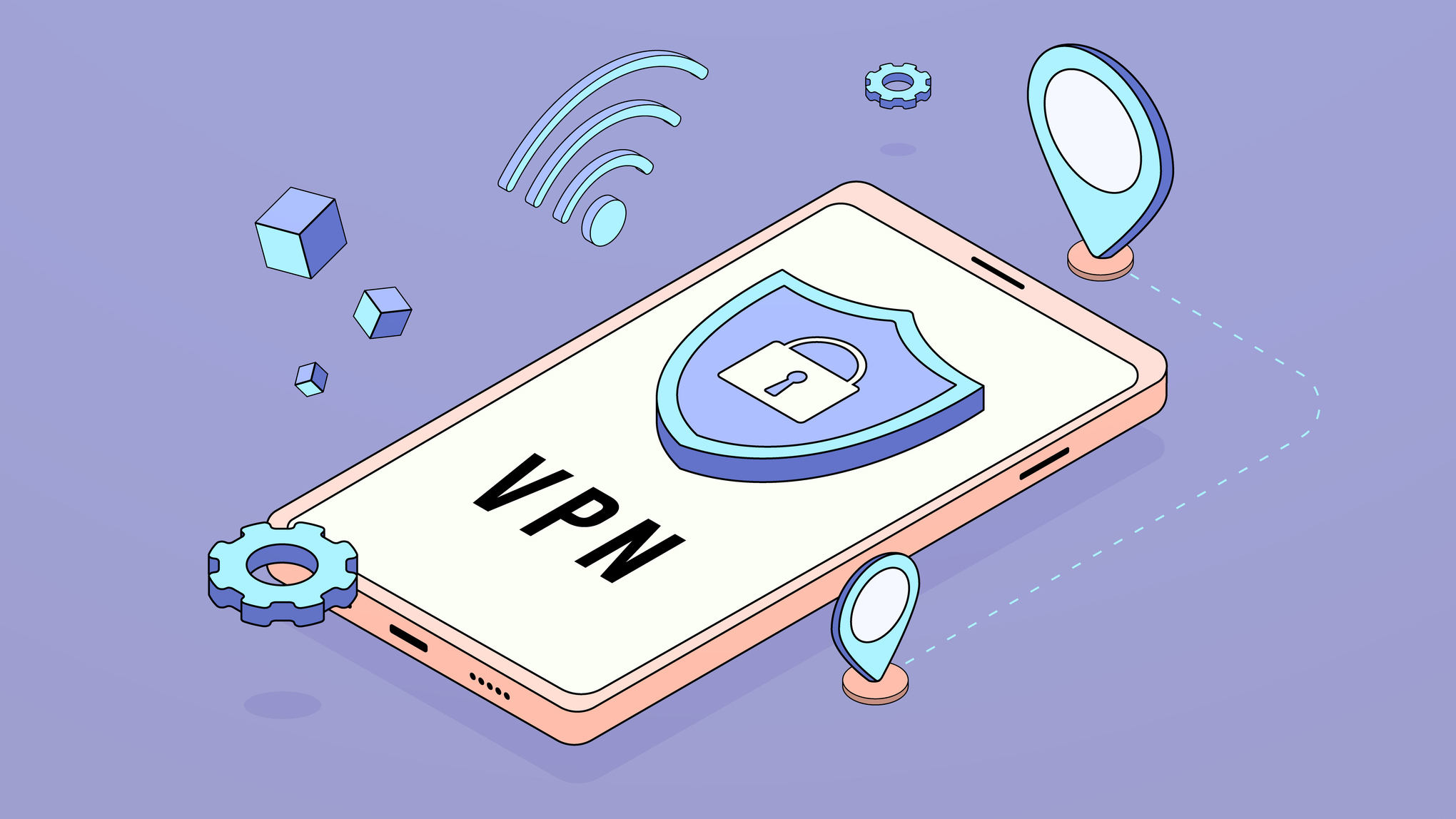
Is there a free VPN without limitations?
Perhaps, but I highly recommend not downloading a free VPN that offers an unrestricted product.
This goes back to the old adage that you never get something for nothing. If your free VPN has no restrictions, it's likely it won't have a paid plan for you to upgrade to. If that's the case, ask yourself the question, "how is this company making money?"
If this is the case, it's likely, if not guaranteed, that it's either selling your data for profit or inserting extra ads into the sites you visit – or quite possibly both.
By using a limited "freemium" VPN, there's a clear way the company makes money – by users upgrading, or simply purchasing the paid version straight away. Of course, there are scam products that masquerade as a legitimate providers, but all the options on this page have high-quality paid products, and good freemium versions that are 100% safe to use.
When might a free VPN not be a good choice?
A free VPN is likely to come up short for those looking to stream or torrent, or people looking for a gaming VPN. That's because these activities use up tons of data. If you've got unlimited data with your VPN, that's not an issue, but if you've only got 500 MB to play with, that's only about one episode in standard def on Netflix – and that's only if you can actually access the service.
Also, you might find that your connection speeds drop, and for gamers and torrenters that's a killer. Those activities rely on having high speeds, and only the best paid-for services can provide that.
Finally, some free VPNs struggle with privacy issues, and the addition of ads can be a real pain for users. If you want the most secure service, you'll have to pay for one – at least then you'll know exactly how your VPN is making money, rather than hoping it's not using your info to cash in.
Are free VPNs legal?
In short, yes. VPN software itself is no less legal than any other mainstream software.
However, using it to torrent copyrighted files is still illegal, as is accessing any other illicit content.
Essentially, while a free VPN is perfectly legal to own and use, it doesn't make illegal acts legal just because it makes the crime harder to detect.
Free VPN FAQs
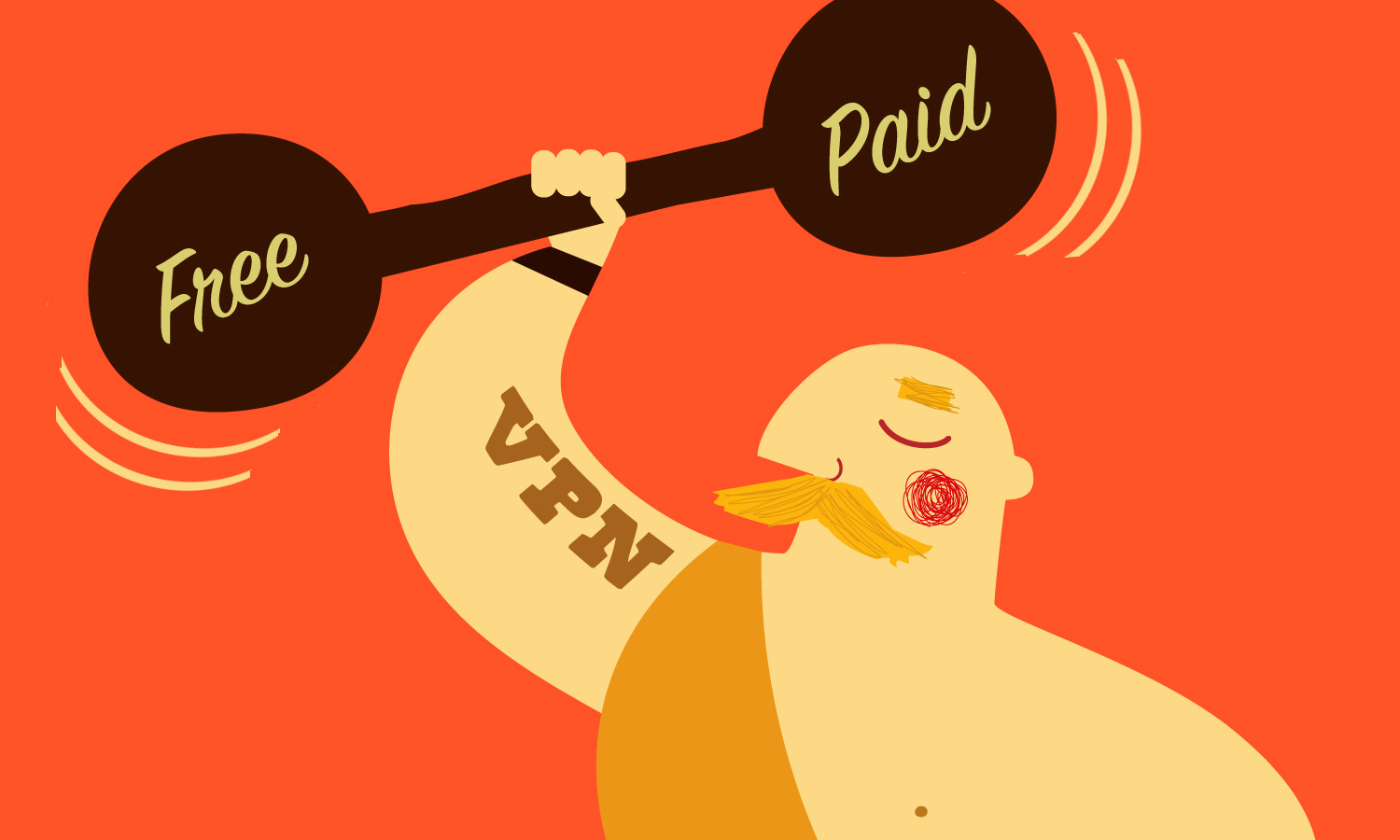
Free VPN vs paid – which should you get?
I've discussed free vs paid VPNs before, but if you're looking for a short answer, it's quite simple. Free VPNs are best used very minimally – perhaps you need to check a price of a product in another country. Paid VPNs should be used if you're planning on regularly using the software, and nowadays even cheap providers deliver excellent performance.
Are free VPNs safe?
Our Cybersecurity Commissioning Editor Olivia Powell covered the question of whether free VPNs are safe in detail, but in essence, it boils down to choosing the right one. I consider all of the VPNs I've featured on this page safe to use, but if you head straight to your app store, you're bound to come across seemingly popular VPNs that are best avoided. Be vigilant, and make sure you're downloading as reputable product before you trust it with your traffic.
Is there a completely free VPN?
Well, it depends on what you classify as 'free'. There are plenty of free VPNs that don't part you from your cash, but you could be paying for them by watching ads or even unknowingly giving them your data to sell.
The best free VPN services tend to be 'free versions' that are intended to give you a taster of a paid product before asking you to actually hand over your money. The best providers like Proton VPN and PrivadoVPN do this by using data limits and server restriction to create an incentive to upgrade. Many people do, which pays for the company's costs overall.
I'd recommend avoiding any free VPN that doesn't have a paid option – if there isn't a paying customer-base supporting the development of the software, who knows where the company's getting its money?

Is a free VPN better than no VPN?
If you're using a good-quality provider like the ones I've recommended on this page, a free VPN absolutely is better than no VPN.
All the providers I've covered here offer industry-standard encryption, a range of server locations, and a usage amount of data that shouldn't be too restrictive if you're only using it sporadically.
That said, VPNs work best when they're active 24/7, and only Proton VPN Free offers an unlimited data cap. Here, paid VPNs will perform best, but in a pinch, a free VPN is much better than no VPN at all.
Disclaimer
We test and review VPN services in the context of legal recreational uses. For example: 1. Accessing a service from another country (subject to the terms and conditions of that service). 2. Protecting your online security and strengthening your online privacy when abroad. We do not support or condone the illegal or malicious use of VPN services. Consuming pirated content that is paid-for is neither endorsed nor approved by Future Publishing.
Sign up to get the BEST of Tom's Guide direct to your inbox.
Get instant access to breaking news, the hottest reviews, great deals and helpful tips.

Mo is VPN editor at Tom's Guide. Day-to-day he oversees guides on the best VPNs, privacy, and cybersecurity content, which includes making sure all his recommendations are up to date, accurate, and as useful for the reader as possible. He's a daily VPN user himself – typically NordVPN, but he enjoys a variety – and as a digital privacy advocate he believes that every step should be taken to protect yourself online.
- Anthony SpadaforaManaging Editor Security and Home Office
